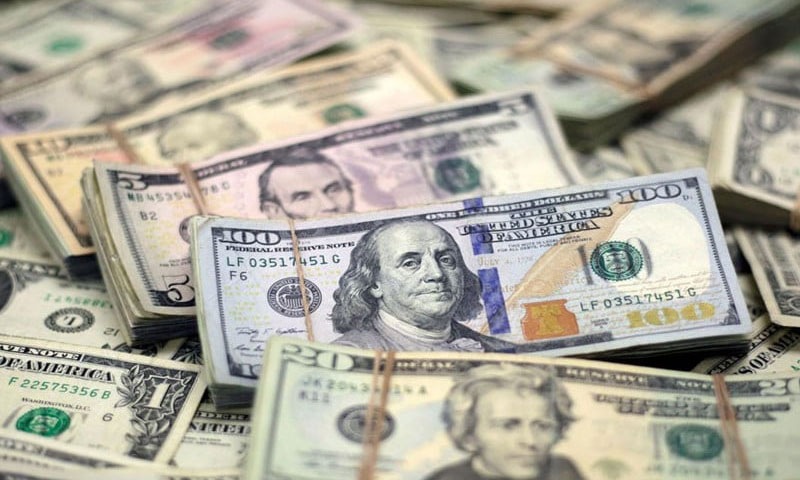- Web
- Feb 05, 2026
UAE rolls over $2 billion debt; forex reserves rise
-

- Web Desk
- Jan 16, 2025

KARACHI: The State Bank of Pakistan (SBP) has confirmed that the United Arab Emirates (UAE) has extended the maturity period of its two deposits of $1 billion each placed with SBP for another year.
The deposits, originally set to mature this month, will now remain with the SBP for an extended period.
Earlier, on January 7, Prime Minister Shehbaz Sharif informed the federal cabinet that the UAE has extended the repayment of $2 billion in debt due this month.
He said that UAE President Sheikh Mohamed bin Zayed Al Nahyan announced the rollover of $2 billion in debt during a one-on-one meeting with him in Rahim Yar Khan.
FOREIGN EXCHANGE RESERVES RISE
The SBP also notified an increase in Pakistan’s foreign exchange reserves, which rose by $30 million during the week ending January 10, bringing total reserves to $11.72 billion.
Additionally, commercial banks hold $4.72 billion, taking the country’s total reserves to $16.45 billion.
INDUSTRIAL SECTOR DECLINES
On the other hand, Pakistan’s Large-Scale Manufacturing (LSM) sector saw a 3.8 per cent decline in November 2024 compared to the same month last year, according to the latest report from the Pakistan Bureau of Statistics (PBS).
Also Read: WEF report highlights Pakistan’s key risks for 2025
On a month-on-month (MoM) basis, LSM production reduced by 1.2 per cent from October’s 109.27 points.
Over the first five months of the current fiscal year, the sector contracted by 1.3 per cent compared to the same period in the previous year.
Several key sectors contributed to the overall decline of 1.25 per cent, including food (0.23), tobacco (0.39), textiles (0.40), and garments (1.76). However, petroleum products (-0.18), automobiles (0.78), cement (-0.61), iron and steel (-0.62), electrical equipment (-0.64), machinery (-0.25), and furniture (-2.24) all experienced negative growth.
While production in food, tobacco, textiles, wearing apparel, automobiles, and other transport equipment increased from July to November 2024 compared to the same period in 2023, production in sectors like coke and petroleum products, chemical products, non-metallic minerals, iron and steel, electrical equipment, machinery, and furniture saw a decline.
LSM is closely monitored by policymakers as a gauge for industrial activity in Pakistan. It accounts for around 69 per cent of the manufacturing sector and about 8 per cent of the overall GDP. The sector’s performance is tracked monthly through the Quantum Index of Large-Scale Manufacturing Industries (QIM).
Even though the economy started to recover in the second half of FY24, the government is facing problems like lower demand for exports, a weaker currency, and a growing gap between what the country earns and spends.
These issues are making it harder for the government to manage its finances during tough economic times.




